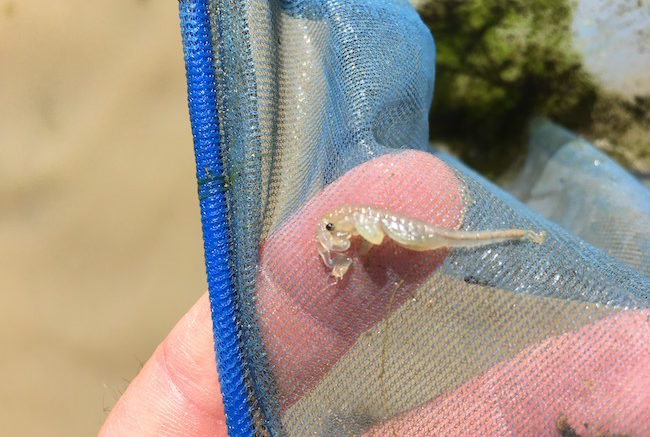Costa Mesa City officials conducting extensive surveys of vernal pools in Fairview Park this winter announced they have discovered a new, endangered species of fairy shrimp.
As expected, city staffers found the endangered San Diego fairy shrimp in a number of vernal pools that emerged after the heavy rains in December and January, but what they didn’t anticipate was the discovery of the Riverside fairy shrimp.
“It is likely that the Riverside fairy shrimp, which is a warm-water species, has been present but went undetected because of very low numbers and because they typically emerge after the San Diego fairy shrimp, which prefer the cold water of December and January, are finished for the season,” said Tony Bomkamp, a biologist who consults with the city on Fairview Park.
The Riverside fairy shrimp was named for Riverside County where it was originally found and thought to occur in only a few pools there. Later it was found in San Diego County in many pools including on Camp Pendleton.
In the late 1990s, Riverside fairy shrimp were found in a number of pools in Orange County and a large vernal pool in Ventura County. Unlike the cold-water relatives of the San Diego fairy shrimp, which evolved in colder climates, the Riverside fairy shrimp’s distant relatives derive from Africa.
Fairy shrimp have been around in the fossil record for over 300 million years making them one of the oldest crustaceans on the plant.
In addition, while San Diego fairy shrimp were found and confirmed in the expected vernal pools, the crustaceans were also discovered for the first time in what the city calls Vernal Pool C, which is located on the eastside of Placentia Avenue.
The unexpected heavy rains this winter provided an opportunity to conduct a census of the fairy shrimp in the vernal pools at Fairview Park.
The survey effort was the first formal surveys since San Diego fairy shrimp were first detected in Vernal Pool 5 in 1996 and Vernal Pool 1 in 1997. Other “one-time” surveys found San Diego fairy shrimp in Vernal Pools 4 and 6, but were not season-long surveys like those done this year.
The vernal pools and the respective watersheds are off limits to the general public to protect the habitats and have been temporarily delineated based on historical maps.
Additional delineation will be added to protect expanded areas of the vernal pool basins as soon as the ground is hard and dry.



